Eighth Annual Diagnostic Excellence Summit:
Measuring Diagnostic Excellence – from Data to Implementation
Ensuring equity and patient-centeredness
May 22, 2024, 9 a.m. – 4 p.m.
Johns Hopkins University
School of Nursing Auditorium
525 N. Wolfe Street
Baltimore, MD 21205
The 2024 Johns Hopkins Armstrong Institute Center for Diagnostic Excellence summit will focus on measuring diagnostic excellence. This event is a pivotal gathering for health care professionals and researchers eager to delve into the significance of timely, accurate and well-communicated diagnosis.
Attendees will hear from their peers on: the importance of measuring diagnostic excellence; how to develop, test and implement measures that leverage available data and analytics; and implementation barriers and facilitators. Special attention will be given to ensuring equity and adopting a patient-centered lens for measurement, so that every patient receives the highest quality of diagnostic care.
Elevate your understanding of equity and patient-centeredness in health care by exploring how these principles intertwine with diagnostic excellence, ensuring that every patient receives the highest quality of diagnostic care.
Join us at the Eighth Annual Diagnostic Excellence Summit: Measuring Diagnostic Excellence – from Data to Implementation – ensuring equity and patient-centeredness.
Learning objectives:
- Understand the importance of measuring diagnostic excellence in both outpatient and inpatient settings.
- Identify key data sources and analytical methods that can be used to measure diagnostic excellence.
- Reflect on the “lessons learned” by peers who have implemented diagnostic excellence measures.
Johns Hopkins Summit Organizers
David Newman-Toker, M.D., Ph.D.
Director, Armstrong Institute Center for Diagnostic Excellence
David Robinson Professor in Vestibular Neurology

Kathryn McDonald, Ph.D., M.M.
Co-Director, Armstrong Institute Center for Diagnostic Excellence
Bloomberg Distinguished Professor of Health Systems, Quality and Safety
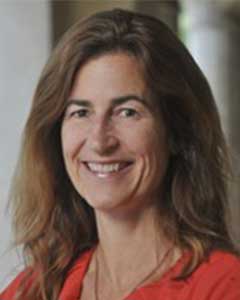
Matt Austin, Ph.D., M.S.
Summit Co-Chair
Associate Professor of Anesthesiology and Critical Care Medicine, Johns Hopkins University School of Medicine
Center for Diagnostic Excellence Co-Investigator
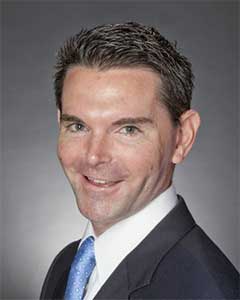
Vadim “Vaadeem” Dukhanin, M.D., M.H.S.
Summit Co-Chair
Assistant Scientist, Department of Health Policy and Management, Johns Hopkins Bloomberg School of Public Health
Center for Diagnostic Excellence Co-Investigator
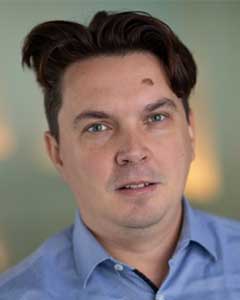
Yuxin “Daisy” Zhu, Ph.D.
Summit Co-Chair
Assistant Professor, Department of Neurology, Johns Hopkins University School of Medicine, and Department of Biostatistics, Johns Hopkins Bloomberg School of Public Health
Center for Diagnostic Excellence Co-Investigator
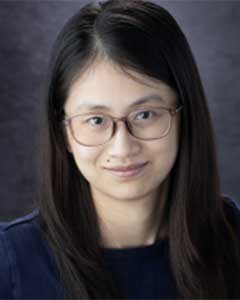
Keynote Speakers
Elizabeth Drye, M.D., S.M.
Elizabeth Drye is chief scientific officer for the National Quality Forum (NQF), where she is responsible for the strategic direction and leadership of NQF’s quality measurement programs and partnerships. She brings an ideal blend of expertise in clinical medicine, measurement science and health policy to the organization and a proven track record in the development of quality measures and their use to drive meaningful improvement.
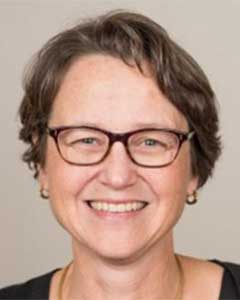
Allen Kachalia, M.D., J.D.
Allen Kachalia is the senior vice president for patient safety and quality at Johns Hopkins Medicine in Baltimore, Maryland. In this role, he oversees patient safety, quality and patient experience outcomes across the continuum of care for the Johns Hopkins Medicine enterprise. He is also the director of the Armstrong Institute for Patient Safety and Quality, which is focused on improving health care for patients around the world through scientific research, innovation, policy advocacy and education in safety and quality. Kachalia is a professor of medicine, and the C. Michael and S. Anne Armstrong Professor of Patient Safety and Quality at the Johns Hopkins University School of Medicine, where his own research focuses on how the law affects medical care, and in particular how liability system reform and the disclosure of medical error relate to the safety and quality of health care. Kachalia is a general internist, practicing as an academic hospitalist on the hospital wards with medical students and residents.
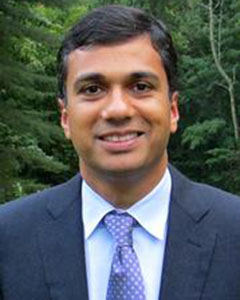
Highlights from Past Conferences
-
The Diagnostic Excellence Summit was open to the public to discuss disparities and equity issues facing patients during the COVID-19 pandemic, to consider innovations in care models, research and clinical interventions, and to examine gaps in knowledge and best practices regarding addressing the impact of disparities on diagnosis.
- Keynote Speech: “National Perspectives in Health Care Disparities” by Jeffrey Brady, director of the Agency for Healthcare Research and Quality’s Center for Quality Improvement and Patient Safety,
- The first segment of the summit, led by Brady, featured a panel of experts discussing a national perspective on health care disparities and the pandemic’s impact on access and equity concerns.
- The second segment, Understanding the Intersection of Disparities and Diagnostic Excellence, featured talks from leaders evaluating access and equity issues impacting our communities. The session explored key concepts in disparities research as well as innovations in telehealth deployment and education to consider and address challenges in clinical care in this new environment.
- The third and final segment of the conference, led by practicing clinicians in primary care, women’s health and emergency medicine, focused on real world clinical experiences as well as innovative approaches in community engagement and in modeling, methods and technology. Faculty presented specific clinical adaptations to improve care quality, access and equity during the pandemic and to facilitate conversation to learn from other organizations and clinicians across the country.
-
This three-hour virtual summit focused on diagnosing SARS-CoV-2, COVID disease and non-COVID diseases during the COVID-19 pandemic.
- Panel discussions led by Yukari Manabe, professor in the Division of Infectious Diseases in the Department of Medicine, focused on current and future diagnostics for the SARS-CoV-2 virus.
- A presentation by Joshua Sharfstein, vice dean for public health practice and community engagement, featured a panel of clinical, public health and public policy experts discussing an overall strategy to address both COVID and non-COVID disease diagnosis across different levels of the public health response.
- Presentations by the leaders of the Center for Diagnostic Excellence included Susan Peterson, assistant professor of emergency medicine, and Kathryn McDonald, a patient safety expert and Bloomberg Distinguished Professor of Health Systems, Quality and Safety.
- Networking with patient safety and quality champions across our health system.
-
Presentations by faculty and staff members throughout Johns Hopkins Medicine.
-
Educational courses:
-
Point-of-Care Lung Ultrasound in the Diagnosis and Stratification of Patients with COVID-19
-
Telehealth Diagnostic Triage of Patients in the Era of COVID
-
Being a Patient in the Midst of a Pandemic: Experiences Seeking COVID and non-COVID Care
-
Preparing for the “Second Wave” of COVID Diagnosis
-
Clinical Data Repurposed for Diagnosing and Tracking the Outbreak
-
View the full program agenda.
-
The Diagnostic Strategy for the COVID-19 Pandemic – Bench to Bedside to Blueprint for Policymakers Summit
The 2020 Diagnostic Excellence Summit was a virtual (and recorded) conference, open to the public, on diagnosing SARS-CoV-2, COVID disease and non-COVID-19 diseases during the COVID-19 pandemic.
For questions, please email [email protected].


